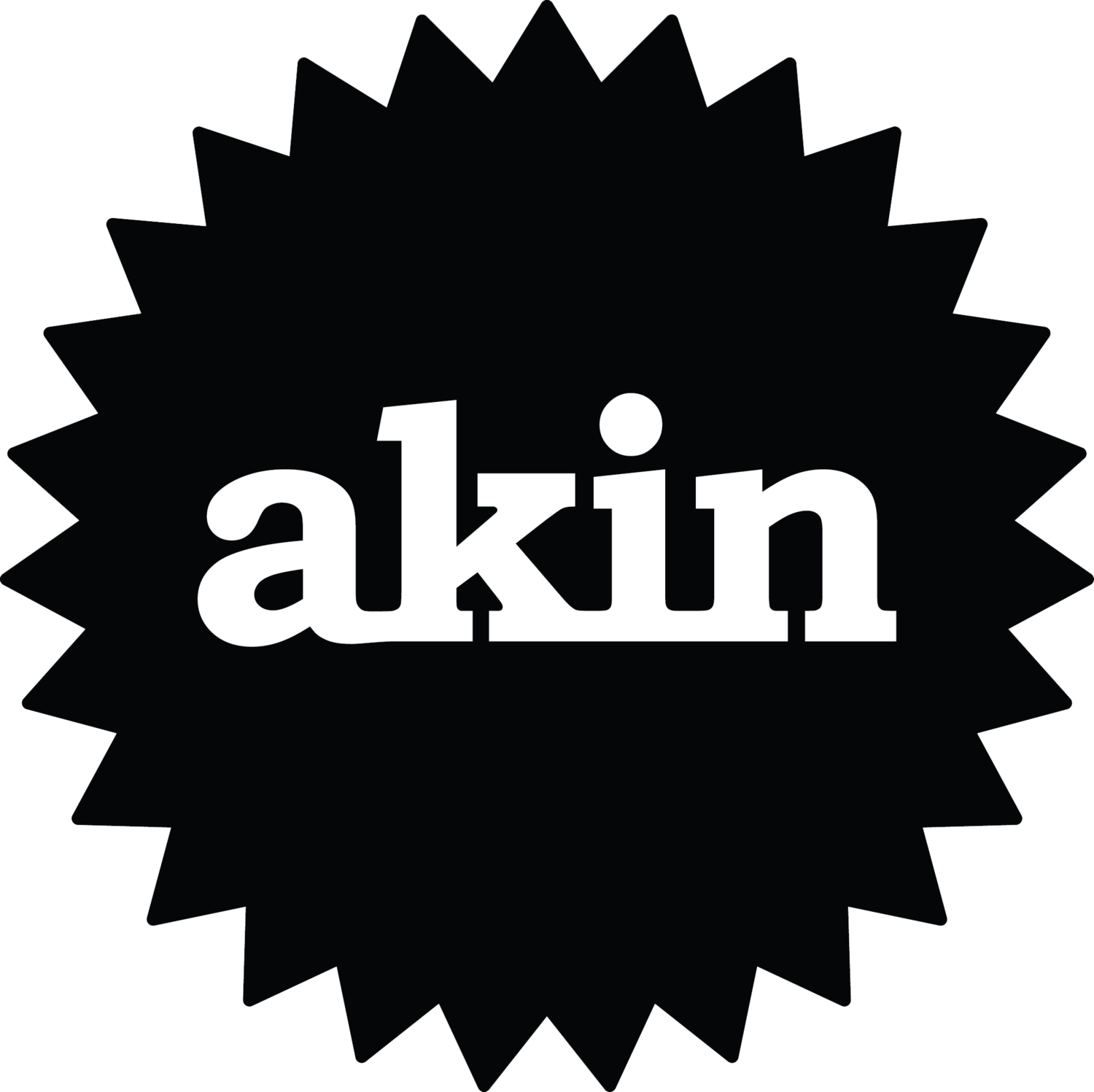Ongoing Equity and Inclusion Work at Akin:
Since 2018, Akin has worked with Artist, Anti-oppression, Liberation & Meaningful Inclusion consultant Rania El Mugammar to build safer, more inclusive spaces for our community members. We conducted a demographics and equity survey in 2018, using Ontario Human Rights Code consistent grounds, to better understand the makeup of our spaces, as well as the needs and experiences of our artist community. Through this survey, and our ongoing work detailed on this website, we were able to identify gaps in our services and learnings, and to reaffirm our commitment to doing the work of equity through an anti-oppressive lens.
Our action plan involves taking the time to develop next steps that will address concerns that have been raised including the anti-Black racism and systemic white privilege that we know exists within Akin. We are working to reconcile our past wrongs and are offering reparations and support to the folks who have been harmed by racism within our community and we are contributing to the larger conversations on anti-Black racism in more meaningful ways that centre BIPOC experiences past, present and future.
We will share public updates over the coming months as we put into action the important next steps we need to take. You can read our most recent public statement below which was published on our social platforms on June 11th, 2020:
Thank you for the messages we’ve received and for all of the labour that has been contributed towards keeping Akin accountable. These reminders that we must do better are so appreciated and are helping to inform our planning. Akin has had a history of handling conflicts poorly, and has not acted quickly enough when we have needed to be accountable and take action on the root causes. We have too often avoided difficult conversations, and have been reactive to community criticism instead of proactive in the work we need to do.
As a team we have and will continue taking time to develop new steps to address ongoing concerns, and the anti-Black racism and systemic white privilege that we know exists within Akin. We’re lucky to have a group of folks who guide us in this work, which is detailed on our website, but know we need to take greater action immediately and make it a true priority. While we are still having many conversations and this will evolve as we continue to learn, we know that some of the work that we’re planning for in 2020 will include:
A revised social media process and protocol that better respects artists’ agency, is more timely in terms of communication, and pays CARFAC fees to all of the BIPOC artists who are interested in doing upcoming social media takeovers. We will make a concerted effort to highlight the work of BIPOC artists constantly, not only in this important moment or when it benefits Akin.
A greater, ongoing financial commitment to specifically support Black artists and contribute to organizations that support Black Lives, Black communities, and the fight for social justice, while leveraging our position of privilege to move resources into the hands of BIPOC communities.
Reconciliation of our past wrongs and offering of reparations and support to folks who have been harmed by racism within Akin.
Contributions to the larger conversations on anti-Black racism in more meaningful ways that centre Black experiences past, present and future. We will do better, and not only thoughtfully, but quickly.
Significant and swift changes to our team and Board to include more BIPOC voices to help steer Akin on its path forward. Thank you for your continued feedback, as we learn (and unlearn). Love, Akin
We understand that this work is very important, and that we will inevitably make mistakes, as a result, we are committed to a process of accountability and transparency. We welcome your feedback and reflections, please visit www.akincollective.com/contact to leave comments, questions, suggestions or feedback. If you wish to report a conflict or other emergency that needs urgent attention please visit www.akincollective.com/reporting.
Trainings & Capacity Building
Both staff and members indicated a need to increase our learnings and capacities in several areas. As a result, we have undergone training on the following topics:
Anti-oppression for Artists & Cultural Producers
Conflict Resolution & Empathy in Communications
Mental Health First Aid
Queer and Trans Inclusion
Emergency First Aid and CPR
We continue to cultivate new skills and to critically reflect on our work interpersonally and institutionally.
Resource database
Policy & Process
Addressing systems issues, alongside increased capacity and more inclusive programming, is pivotal to continuing this work in a sustainable and meaningful way.
As a result, we’ve made many changes to existing policies, as well as developing new processes to better understand the needs of our community, to limit risk/harm to our members and staff and to better serve our clients.
Code of Conduct
With the guidance of our consultant, and with input from our members, we have revisited our code of conduct in order to create a robust, actionable and clear policy that centres the most marginalized members of our communities.
Feedback Forms and Reporting
We have created two Feedback forms where members can report conflicts or concerns to us anonymously or with their contact information.
